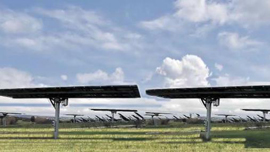Energy, EU – Baltic States, Legislation
International Internet Magazine. Baltic States news & analytics
Tuesday, 03.02.2026, 20:44
Energy cooperation between EU and South-Eastern European countries
 Print version
Print version |
|---|
The Treaty has set a good example of regional cooperation between the EU and the South-Eastern European countries which can diversify their energy sources.
The Energy Community Treaty was signed between the European Union and the following nine Contracting Parties: Albania, Bosnia and Herzegovina, Croatia, the Former Yugoslav Republic of Macedonia, the Republic of Moldova, Montenegro Serbia, Ukraine and Kosovo under UNSCR- 1244. At present, Armenia, Georgia, Norway and Turkey have the status of observers. The Treaty entered into force in 2006.
The Energy Community was created for a period of 10 years, expiring in 2016 and it can be extended by a unanimous decision of its Ministerial Council. Its secretariat is in Vienna. It gives administrative support, provides legal and technical assistance to the parties. The budget of the Energy Community Treaty for 2011 is over €3 million and it is financed to a 98% by the EU. The Energy Community has a regional market of 73 million citizens.
In the medium term, the Energy Community aims at creating an integrated energy market across the region which allows for cross-border trade, guarantees energy supply and takes into consideration climate and social aspects.
The Energy Community celebrated its fifth anniversary on 24 October 2011. Established to increase socio-economic stability and security of supply, the Energy Community has set a good example of regional cooperation in which the EU and the South-Eastern European countries can diversify their energy sources. It has created a functioning institutional framework and more legal certainty for investors. Next steps are to enhance market reforms and to boost investments in the energy sector. The final objective is to fully integrate the European's internal energy market with the South-Eastern sub- regional markets.
Commission’s opinion
The EU Energy Commissioner Günther Oettinger said: "The Energy Community has proved to be an appropriate framework to boost business and favour sustainable growth. Now comes the time for the full implementation of the regulatory and legal framework set by the Community. When fully implemented it will ensure that citizens and companies benefit from fair competition on energy markets and are protected against unexpected power cuts." Brussels, 21 October 2011.
Reference: IP/11/1223, 21.10.2011.
Achievements
Contracting Parties have been successful in creating a stable regulatory framework and aligning their rules to the European Union standards. The Energy Community Contracting Parties have adopted key EU legislation for the opening of their electricity and gas markets to competition, based on the Second Energy Package and including common rules on access to the market, on operation of the systems, on third party access to energy infrastructure and on consumer protection e.g.; they have also adopted EU rules on energy efficiency, renewables, energy performance of buildings and labelling of household appliances. The Energy Community has also recently adopted rules on electricity and gas markets of the Third Energy Package. The Contracting Parties have committed themselves to put it in place by 2015.
Perspectives
In the coming years the Energy Community will mainly tackle the investment challenges. A number of existing power plants require replacement or rehabilitation, electricity networks and gas interconnectors need modernisation. Strong energy regulatory authorities are needed, with enough powers, resources and independence to ensure non-discrimination, effective competition and efficient operation of the energy market. This will create a market environment that will help attract necessary investments.
In its role as a coordinator of the Energy Community Treaty’s activities, the European Commission will promote investments in the region and will offer specific advice on structural reform. The Contracting Parties will create a regional strategy which will examine the needs and potential of the region and will include an investments’ plan.
Further information
- http://ec.europa.eu/energy/gas_electricity/community/community_en.htm
- http://www.energy-community.org/portal/page/portal/ENC_HOME








 «The Baltic Course» Is Sold and Stays in Business!
«The Baltic Course» Is Sold and Stays in Business!

